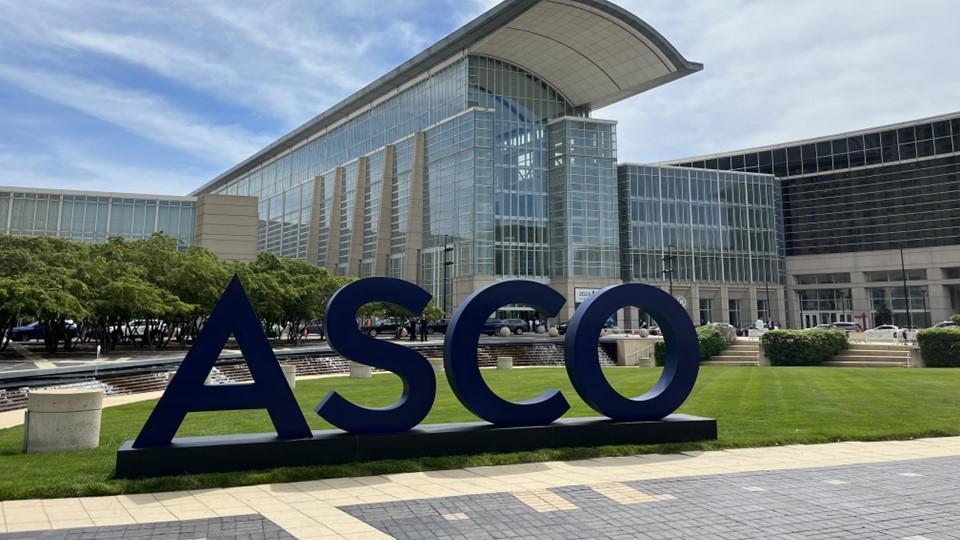Four takeaways from ASCO24

Last weekend, I travelled to Chicago for the annual conference of the American Society of Clinical Oncologists— the annual event where major breakthroughs in cancer care are announced.
This was my second year at the show and the mood at ASCO continues to be electric, as researchers are acutely aware of the amount of hope and promise for patients being fuelled by rapid innovations in immunotherapy and cell therapy, with a particularly strong focus on ADCs.
A great show for AstraZeneca
I always bristle at the characterisation of ASCO as a competition among pharma companies — it is, after all, an event for physicians, where the focus ought to be on how best to care for patients.
But, for those inclined to keep score, it would be hard to declare any other winner than AstraZeneca, which had abstracts in plenary for the sixth year in a row and presented landmark data across several drugs and disease areas.
As Phil Taylor writes for our news section, three of the group’s top cancer drugs were on display – EGFR inhibitor Tagrisso (osimertinib), PD-L1 inhibitor Imfinzi (durvalumab), and Daiichi Sankyo-partnered HER2 antibody-drug conjugate (ADC) Enhertu (trastuzumab deruxtecan) – with new data that could expand their use and drive sales.
In addition, they dropped preliminary data on a new GPC3-targeting CAR-T, C-CAR031, being co-developed in China by AbelZeta and AstraZeneca.
Others with something to brag about are GSK, which seems poised to rescue its multiple myeloma drug Blenrep from irrelevancy with some positive Phase 3 data, after a few failed trials previously saw it pulled from the market, and MSD (Merck in the US), which was celebrating the 10th anniversary of Keytruda with a Phase 2B (in collaboration with Moderna) of a melanoma vaccine that, in combination with the blockbuster, yielded a 49% reduction in the risk of recurrence or death.
Lung cancer in the headlines
If I were to crown a winner, however, it wouldn’t be a company at all. I’d give it to patients with lung cancer, especially non-small cell lung cancer.
In addition to AstraZeneca’s lung cancer data, a number of companies presented data on KRAS inhibitors, a target once thought to be undruggable, that’s offering tremendous promise in treating non-small cell lung cancer. Amgen also had a promising phase 2 in small cell lung cancer, which affects fewer patients, but is aggressive, with few treatment options.
Johnson & Johnson’s PALOMA-3 study showed that subcutaneous delivery of its bispecific monoclonal antibody amivantamab (Rybrevant) reduced administration times and adverse reactions compared to infusion.
Stay on target
One thing that the rise of ADCs highlights is how the future of cancer care is increasingly targeted, with many of the event’s most striking results confined to ever more specific genetic subsets of patients. For instance, AZ raised some eyebrows at the show with data that described a category of “ultra-low” HER breast cancer patients.
Combined with the focus on KRAS in lung cancer, it’s a reminder that the future of cancer care is in targeted treatments, and that means that advances in genetic testing, assays, and diagnoses are going to have to keep pace with the advances in therapies if these breakthroughs are to make a difference.
One question that was asked more than once at Q&As was exactly how doctors are meant to find and identify “ultra-low” HER patients. It’s a thorny question because it gets not just to innovation, but also to access – making sure that the right tests are run at low-income and high-income treatment centres alike.
AI and digital health
ASCO is not a tech conference, but it’s hard to escape tech news these days. ASCO saw plenary abstracts about how digital technology can transform cancer care, from AI for colonoscopy scheduling to palliative care via telemedicine.
Additionally, a few keynote speakers like Dr Jonathan Carlson, managing director of Microsoft Research Health Futures Lab, spoke about the impact AI is having on the cancer space.
Carlson spoke about how AI in cancer care has, up until now, been an incremental advancement, a tool to help researchers and clinicians do what they do better. But large language models (LLMs) are poised to disrupt everything about how we do care, by providing increasingly accurate diagnoses based on symptoms.
“What I find interesting about this is, on the one hand, it is a story of wonderful patient empowerment,” he said. “But it also raises a lot of questions about how this technology should be used, how it should be integrated into the system. In short, it shows that we are seeing the signs of impending ecosystem transformation.”
ASCO President Lynn Schuchter was quick to offer a caveat:
“Even as we stand on the brink of this new scientific and technological era in medicine, remember that no algorithm, no machine, can explain to a patient with human compassion what their cancer is, their choices, and what their future may hold, nor can AI replace us in understanding what a patient's values are, their needs and desires, and those of their loved ones,” she said. “Those are the things that we, not just as clinicians but as human beings, must do for our patients. This is the art of cancer care. There is no substitute. Just as we've always integrated new science and technology into oncology, let us embrace AI as a new tool, while prioritising the compassionate, ethical, empathetic, and personalised care that defines our profession.”












